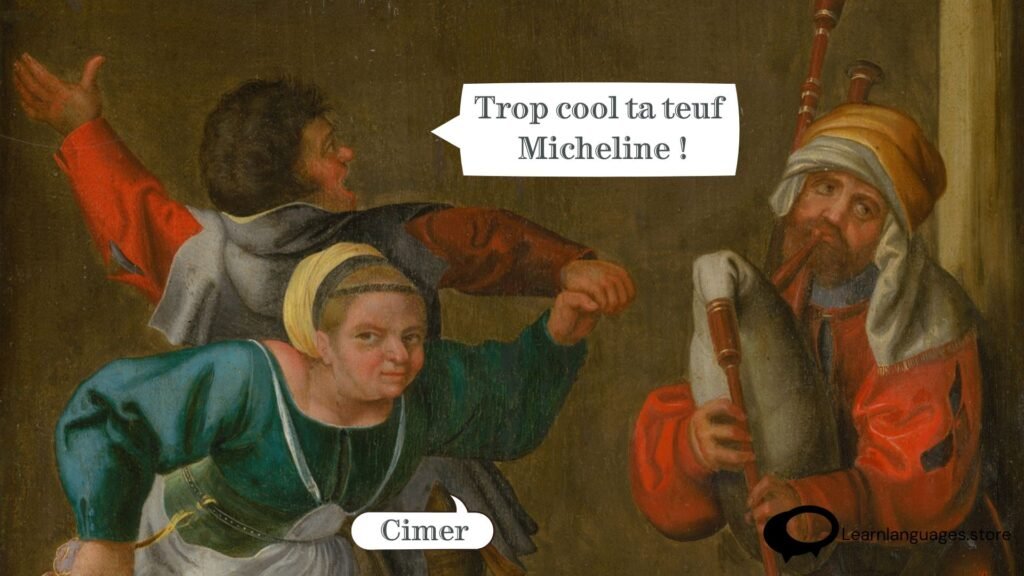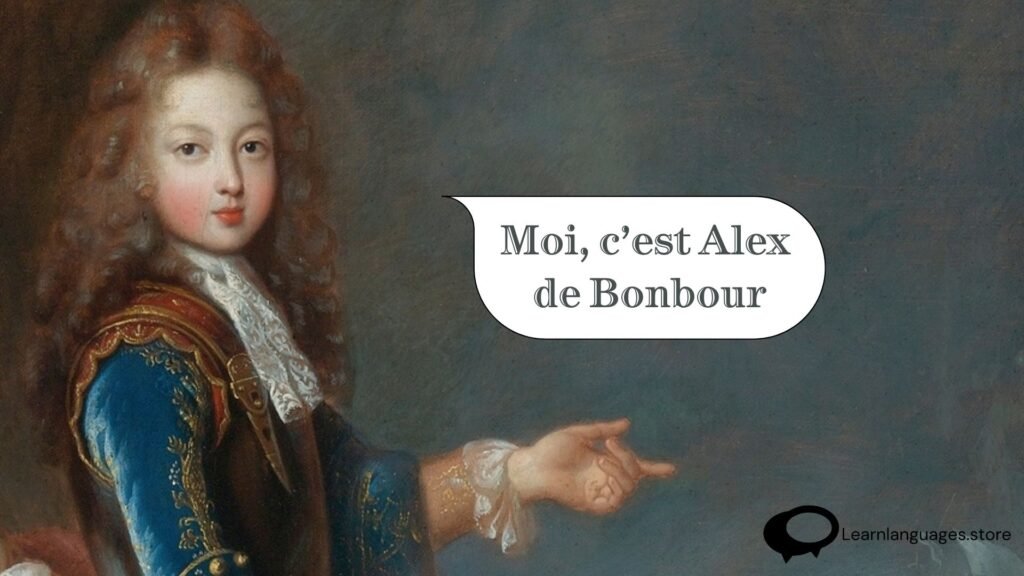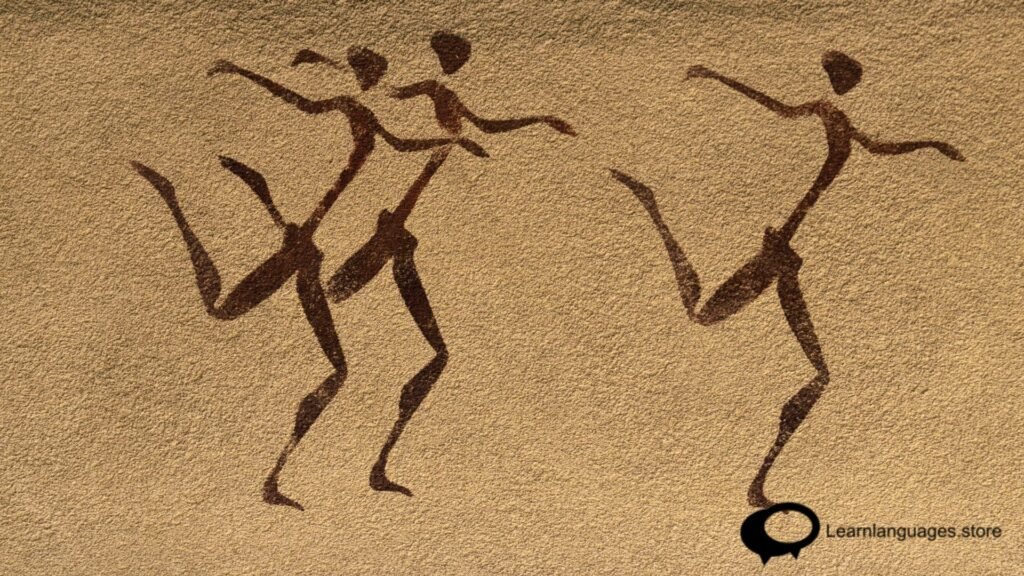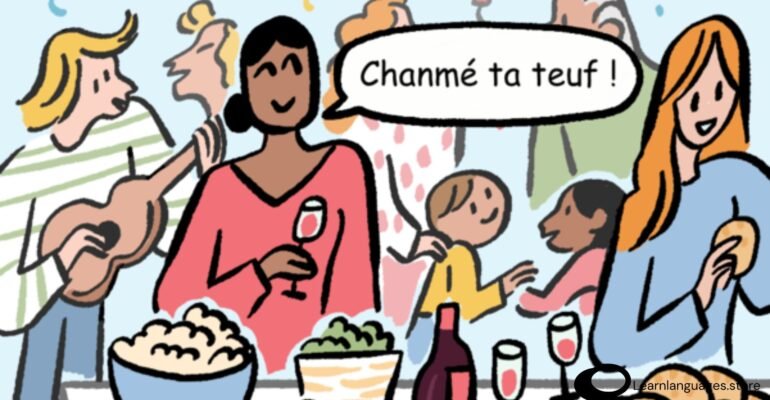DECODING FRANCE’S SECRET LANGUAGE: AN INSIDER’S GUIDE TO VERLAN
DECODING FRANCE’S SECRET LANGUAGE: AN INSIDER’S GUIDE TO VERLAN
Have you ever spent time with a group of people who speak French and wondered why you don’t comprehend half of the terms they use? Or have you ever thought to yourself, “This sounds nothing like the French I learned in high school,” after seeing a French film? You’re not the only person learning French who has confusion! In case you haven’t guessed it yet, French slang is quite sophisticated. Every age in France has its own colloquialisms, ranging from “C’est ouf!” to “C’est swag!” (A mere trio of several methods to express something’s awesome.)
Estimated reading time: 6 minutes

Today, we’re going to focus on verlan, a specific kind of French slang that has pig Latin roots.If you’ve watched French movies like the beloved La Haine, you may be familiar with phrases like “teuf” or “meuf.” What precisely is verlan, though? How did it become to be so well-liked? Does using it make you sound odd or is it still cool? You’ll be an authority on verlan by the time this essay is through!
THE RISE OF VERLAN
Jean-Paul Colin, a French academic, claims that verlan dates back to the 17th century. Some 17th-century French jokers referred to the royal dynasty as “les Bonbours,” rather than “les Bourbons.” French criminals were using verlan as a covert language by the 19th century. However, it wasn’t until the late 20th century that verlan became popular throughout France. Many immigrants from North Africa moved to France in the 1960s and 1970s, and there they rapidly created their own vernacular. The vernacular employed in its denser suburban neighborhoods, known as les banlieues, extended to France’s largest cities. This colloquialism was later coined “verlan,” which is an aversion of the term “l’envers” (backwards).

Verlan had become so commonplace by 1989 that US French professors were writing about it. Natalie J. Lefkowitz noted in 1989 that she was “alarmed to discover that I often did not understand the language that my students were speaking around me while working as a Fulbright teaching assistant in Paris.” Even the New York Times carried stories about verlan thirteen years later. “Verlan has spread from the peripheral housing projects of France’s poorest immigrants […] and gained widespread popularity among young people across France,” Alexander Stille noted in his 2002 Times piece “Backward Runs French.” It has influenced French rap and hip-hop music, commercial promotions, and movie language.
If you know what “Open Syllable Type CV” implies or are a linguist, you may find this technical essay on verlan interesting. Don’t worry if you don’t know what an open syllable is—verlan is actually rather simple to comprehend.
How it works is that you can flip any word’s syllables. First, let’s try doing this in English. Consider the term MARKET. Phroneme 1: MAR. Next syllable: KET. You are now going to flip the syllables. First syllable:KET. Next syllable: MAR. The term KETMAR is now yours. That is the verlan, or inverse, of the market.
Let’s now conduct this in French. Consider the term BIZARRE. First Syllable: BI. Second syllable: ZARRE. If you reverse these, ZARRE-BI results. You’re all set. The French write “ZARBI,” pronounced zarbee, which rhymes with “barbie,” by slightly altering the orthography. C’est trop zarbi translates to “That’s so strange.” Any short word will work for this. Simply write the word backwards: OUF, if it is a single syllable, such as FOU. “C’est ouf” translates to “That’s crazy.”
WHAT DOES VERLAN SOUND LIKE?
Well, you may be thinking, this makes logic, but if you reversed every phrase in French, wouldn’t it sound really crazy? Yes, in response to your inquiry! Jacques Dutronc, a well-known French artist, once sang a song in verlan. “J’avais la vellecer qui zaifeu des gueva” replaced the original text, “J’avais la cervelle qui faisait des vagues” (My brain was producing waves). And you know what? The song didn’t do too well.

Even those who adore verlan hardly use it as not all French words may be expressed in verlan. Generally speaking, a French term with three syllables or more is not converted to verlan. Pronunciation is the one thing to watch out for while attempting to learn how to verlanize a word (yeah, we just made up the word “verlanize”). For example, the word tomber means “to fall.” There are two syllables in this word: BER / Tom. The problematic part is that the French -ER sound produces an AY sound, whereas the -OM sound is a nasal sound. Thus, your word changes from sounding like TOHN / BAY to BAY / TOHN. The French chose to write that as “béton.” Play the well-known tune “Laisse béton.”
VERLAN IN POPULAR CULTURE
Renaud’s classic 1978 song “Laisse béton” has previously been noted, but verlan isn’t the only French music genre! In the 1990s, French rappers like Assassin and NTM contributed to Verlan’s rise to fame. Numerous French films also include verlan, most notably the comedic thriller Les Ripoux (My New Partner) and the 1955 classic Du rififi chez les hommes.

Is Verlan still, nevertheless, cool? French media started publishing pieces declaring the death of verlan about 2012. French linguist Alain Rey claims that verlan is no longer popular among today’s youth. He says, “The creativity that gave rise to words like meuf (woman) and keuf (cop) has disappeared.” For French speakers, terms like “céfran” (French) and “reum” (mother) sound archaic.
Rey notes that young people typically link verlan with the generation that came before them, and that verlan is rarely used by French rappers and instagrammers. However, there are some indications that verlan may return, and several verlan terms appear to have permanently entered the vocabularies of French speakers.
KEY VERLAN WORDS TO KNOW
While you should avoid using certain outdated verlan expressions like “oilpé” (naked), you can definitely still say some verlan words in everyday French conversations. Here are some of our favorites:
- chelou – Verlan for “louche,” which means “shady” or “suspicious”
- cimer – Merci backwards!
- ouf – The inverse of “fou”, which means “crazy”.
- meuf – Verlan for “woman”
- relou – The verlan term for “lourd,” which means “heavy.” It’s used figuratively to describe something or someone annoying!
- vénère – Verlan for “énervé”, which means “upset” or “annoyed”.
- pécho – Verlan for “choper” which means “to catch”. Pécho is used in romantic situations, and means to kiss or sleep with someone.
Learn Languages Store
Vashi,
Email: services@learnlanguages.store










